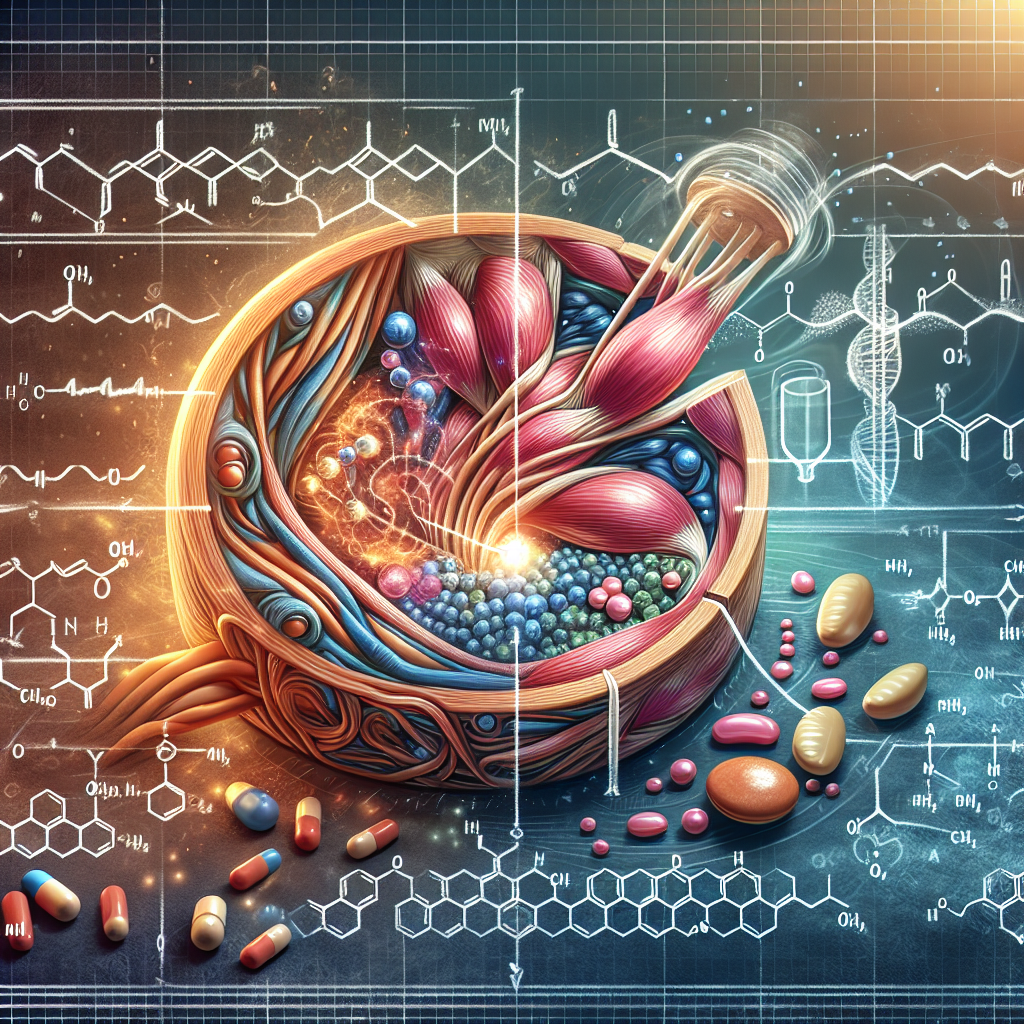
Introduction
Whether you're a fitness veteran or just embarking on your journey to better health, muscle recovery is a term you'll inevitably come across. But what exactly facilitates efficient recovery? Today, we’re delving into the role of amino acid complexes and their critical function in muscle recovery. By the end of this post, you'll be well-equipped to fine-tune your post-workout regimen and elevate your fitness gains!
Understanding Amino Acid Complexes
First things first, let's clarify what amino acid complexes are. Amino acids are fundamental organic compounds that form proteins, often dubbed the building blocks of life. An amino acid complex is a blend of both essential and non-essential amino acids tailored to boost various bodily functions, most notably muscle repair and recovery.
For our health-conscious readers in Central Europe, think of this as your go-to guide on why these compounds deserve your attention!
Main Ingredients and Benefits
The Essential Seven: Crucial Amino Acids for Muscle Recovery
- Leucine: Key for triggering muscle protein synthesis.
- Isoleucine: Aids in energy regulation and immune function.
- Valine: Supports muscle metabolism and tissue repair.
- Glutamine: Essential for immune health and gut function.
- Arginine: Improves blood flow, ensuring better nutrient delivery.
- Ornithine: Reduces fatigue and enhances endurance.
- Citrulline: Helps buffer acid in muscles and boosts nitric oxide production.
Scientific Validation
Research consistently underscores the benefits of amino acids in muscle recovery. The Journal of the International Society of Sports Nutrition highlights the significant impact of branched-chain amino acids (BCAAs) like leucine, isoleucine, and valine in minimizing muscle damage and promoting recovery.
Using Amino Acid Complexes Effectively
Let's focus on application. Understanding the timing and dosage of amino acid complexes can tremendously impact their effectiveness.
Optimal Timing
Experts commonly suggest consuming amino acid complexes right after your workout for optimal absorption and benefits. Pairing them with a carbohydrate source can spike insulin levels, thereby facilitating quicker amino acid uptake.
Dosage Guidelines
The recommended dosage typically ranges from 5 to 20 grams per day, depending on your activity level and personal needs. Splitting the dose between pre-workout and post-workout can offer prolonged advantages.
Periodization Strategy
Consider a cycling approach—such as four weeks of daily intake followed by a one-week break—to prevent tolerance build-up and maintain effectiveness.
Advantages and Potential Side Effects
The Highs
- Boosted Recovery: Faster muscle repair and growth.
- Less Soreness: Reduced DOMS (Delayed Onset Muscle Soreness).
- Greater Endurance: Enhanced performance in both aerobic and anaerobic activities.
- Immune Enhancement: Improved immune function through glutamine.
The Lows and How to Manage Them
- Digestive Discomfort: Some may experience stomach issues; start with a smaller dose to gauge tolerance.
- Risks of Overconsumption: Excessive intake can stress the kidneys; adhere to recommended dosages.
- Allergic Reactions: Monitor for any allergies, particularly with new supplements.
Precautions and Contraindications
If you have pre-existing health conditions, particularly those affecting the liver or kidneys, consult your healthcare provider before starting amino acid supplements. Pregnant and breastfeeding individuals should also seek medical advice.
Amino Acid Complexes vs. Other Supplements
Compared to Protein Powders
While both are valuable, amino acid complexes offer faster absorption compared to protein powders, making them ideal for immediate post-workout recovery. However, protein powders offer a more complete nutritional profile.
Compared to Creatine
Amino acids focus on muscle repair and protein synthesis, whereas creatine predominantly enhances strength and performance.
Choosing Amino Acids
If muscle recovery and reducing soreness are your primary goals, amino acids should be your choice. For boosting strength and performance, consider adding creatine to your regimen.
Real User Experiences and Feedback
Case Studies
Meet Jana from Berlin. She noted, "Adding an amino acid complex post-workout has revolutionized my recovery process. I no longer experience as much soreness and can challenge myself more during workouts."
User Feedback
We’ve received a plethora of positive reviews from users across Europe, highlighting faster recovery and decreased muscle soreness. Some even reported enhanced overall workout performance.
Expert Opinions
Fitness professionals often recommend amino acid complexes for intense workout enthusiasts. Dr. Muller from Vienna emphasizes, "Amino acid supplements are invaluable for anyone serious about muscle recovery and long-term muscle health."
Frequently Asked Questions (FAQ)
Q: Can I take amino acids on days I don’t work out?
A: Absolutely! Consistent intake ensures your muscles continue to receive essential nutrients for repair and growth, even on rest days.
Q: What are some dietary sources of these amino acids?
A: Amino acids are present in protein-rich foods like meat, dairy products, and legumes. Supplements offer concentrated doses that can be more effective post-workout.
Q: Is it necessary to take amino acid supplements if I already use a whey protein shake?
A: While not mandatory, combining both can enhance muscle recovery. Amino acid complexes deliver rapid absorption, complementing the slower-digesting proteins in whey.
Final Thoughts
Amino acid complexes are instrumental in muscle recovery, offering benefits such as reduced soreness and improved performance. For fitness enthusiasts in Central Europe, if you aim to optimize your post-workout routine and boost your gains, amino acids should be a key component.
If you found this article insightful, be sure to browse through our other posts on supplements and recovery techniques. Your journey to peak fitness begins here, one amino acid at a time!



